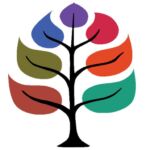Inner Sustainability Resources
We’re happy to offer this page with resources and downloads to support you!
The Mindful Life Program offers programs supporting the application of mindfulness in daily life. Our goal is to help you to live your life with attention and intention, cultivating the skills that empower you to make healthy choices that are in alignment with your values and that are meaningful to you.
Attention – Developing attention through meditation training.
Wisdom – Understanding one’s biases, labeling, projections and pre-judgments. Increasing emotional intelligence and learning to respond rather than react.
Values – Living a meaningful life. Developing healthy habits and responses that are in alignment with one’s personal values.
Open heart – Developing healthy relationships and connections. Cultivating skills of compassion, loving-kindness, empathic joy, and equanimity.
In order to live a meaningful life and develop the freedom to live consciously, we focus on training the mind and cultivating the ability to make healthy choices that are beneficial to the life you want to live. In this way, you can live your life with attention and intention.
Retreat Resources (post-retreat additions are in red)
- Readings (Download below)
- Chapter 1 in Transforming to a Mindful Life
- Chapters 1 and 2 in The Wisdom of a Meaningful Life
- Beginning a Daily Practice
- Shamatha Meditation Instructions
- Envisioning by Donella Meadows
- The Human Dimensions of Resilience
- Four Keys of Living Mindfully
- Four Immeasurables Aspiration
- Videos
- Dr. Amishi Jha, Taming the Wandering Mind – https://www.youtube.com/watch?v=UQzvNIIMayo
- Rick Hanson, Take In The Good – https://www.youtube.com/watch?v=1LDDzhDIqcM
- John Francis – Walk the Earth – https://www.youtube.com/watch?v=NlYJQ0psZYA
- Journal questions (Please bring your written answers to support you in dialogue during the retreat)
-
- What is your vision of your own flourishing or genuine happiness? How would you love to transform, mature and grow? What qualities impede you and from which you would like to be free? What qualities would you like to enhance and grow in yourself?
- What were your initial motivations for getting into this field? What values related to that motivation?
- In order to have a compass of your 6 most important values today, what values would you like to include on your compass? (Use the Values list at the end of the CORE Staff Readings to help you.)
- What are the values today that are operational (often displayed) and aspirational (would like to act from even more)?
- What actions would support you in growing resilience and living a more mindful life? What is your action plan?
Guided Meditations
Resources
“Attention is the key that makes personal change possible and the good news is that it can be trained.” – Alan Wallace
“It is true that we are called to create a better world. But we are first of all called to a more immediate and exalted task: that of creating our own lives.” – Thomas Merton
“Resiliency is the capacity to recover from adversity and to pursue your goals despite challenges. It helps you survive the worst days of your life and thrive every day of your life.”- Rick Hanson
“The harder a person’s life is, the more challenges one has, the less the outer world is helping… the more important it is to have mental resources.”
– Rick Hanson, PhD
Martin Luther King Jr. exhorted us, “Never succumb to the temptation of becoming bitter. As you press for justice, be sure to move with dignity and discipline, using only the instruments of love.”
“…a balanced meditative practice in the course of a socially engaged way of life heightens your psychological immune system so that you are less vulnerable to mental imbalance is of all kinds.” Alan Wallace, The Attention Revolution
Active Hope by Joanna Macy and Chris Johnstone
“The word hope has two different meanings. The first involves hopefulness, believing our preferred outcome is reasonably likely to happen. If we require this kind of hope before we commit ourselves to an action, our response gets blocked in areas where we don’t rate our chances too high.
The second meaning is about desire. It is this kind of hope that starts our journey — knowing what we hope for and what we’d like, or love, to take place. It is what we do with this hope that really makes the difference. Passive hope is about waiting for external agencies to bring about what we desire. Active Hope is about becoming active participants in bringing about what we hope for.
Active Hope is a practice. Like tai chi or gardening, it is something we do rather than have. It is a process we can apply to any situation, and it involves three key steps. First, we take in a clear view of reality; second, we identify what we hope for in terms of the direction we’d like things to move in or the values we’d like to see expressed; and third, we take steps to move ourselves or our situation in that direction.
Since Active Hope doesn’t require our optimism, we can apply it even in areas where we feel hopeless. The guiding impetus is intention; we choose what we aim to bring about, act for, or express. Rather than weighing our chances and proceeding only when we feel hopeful, we focus on our intention and let it be our guide.”
From https://www.activehope.info/active-hope.html


